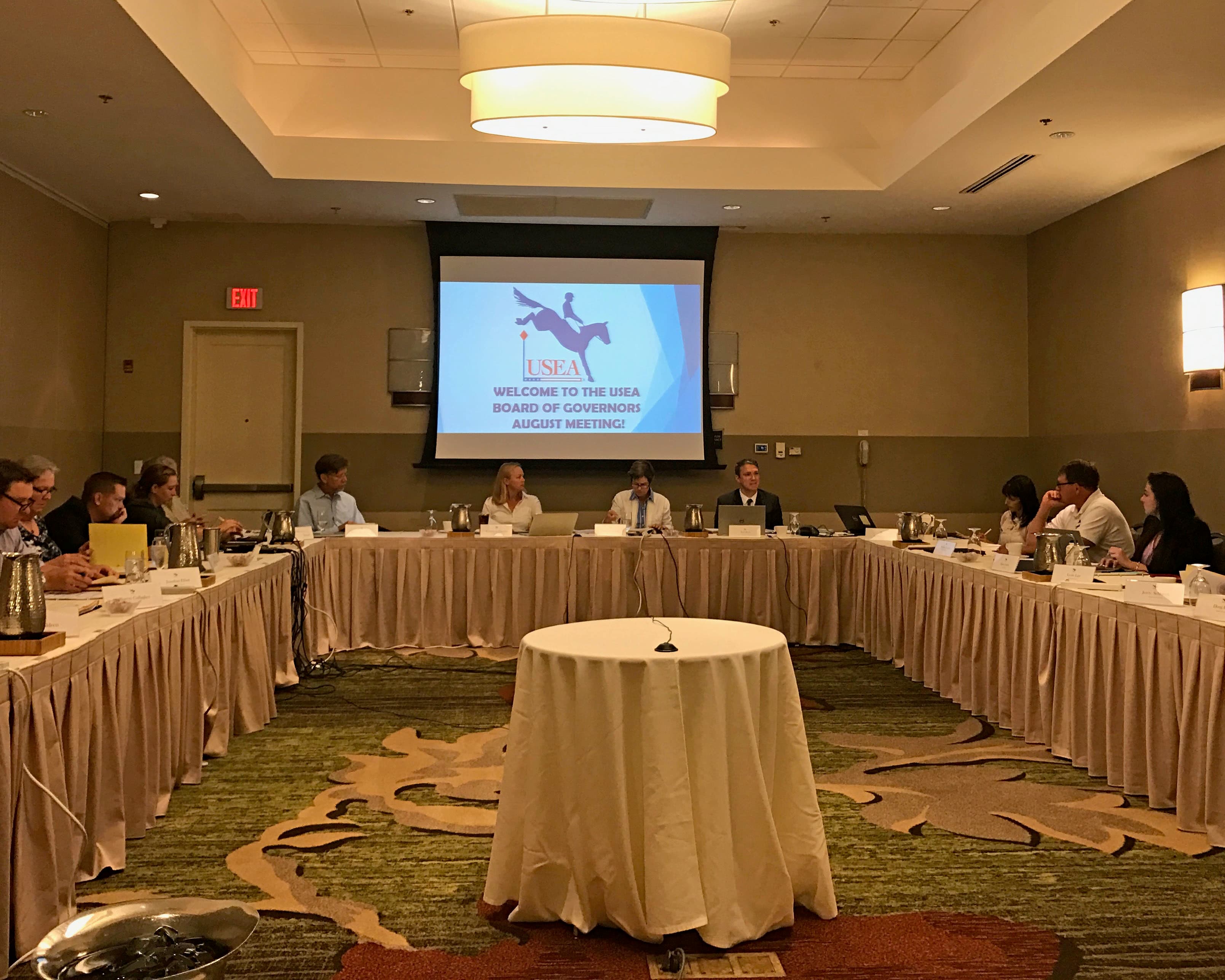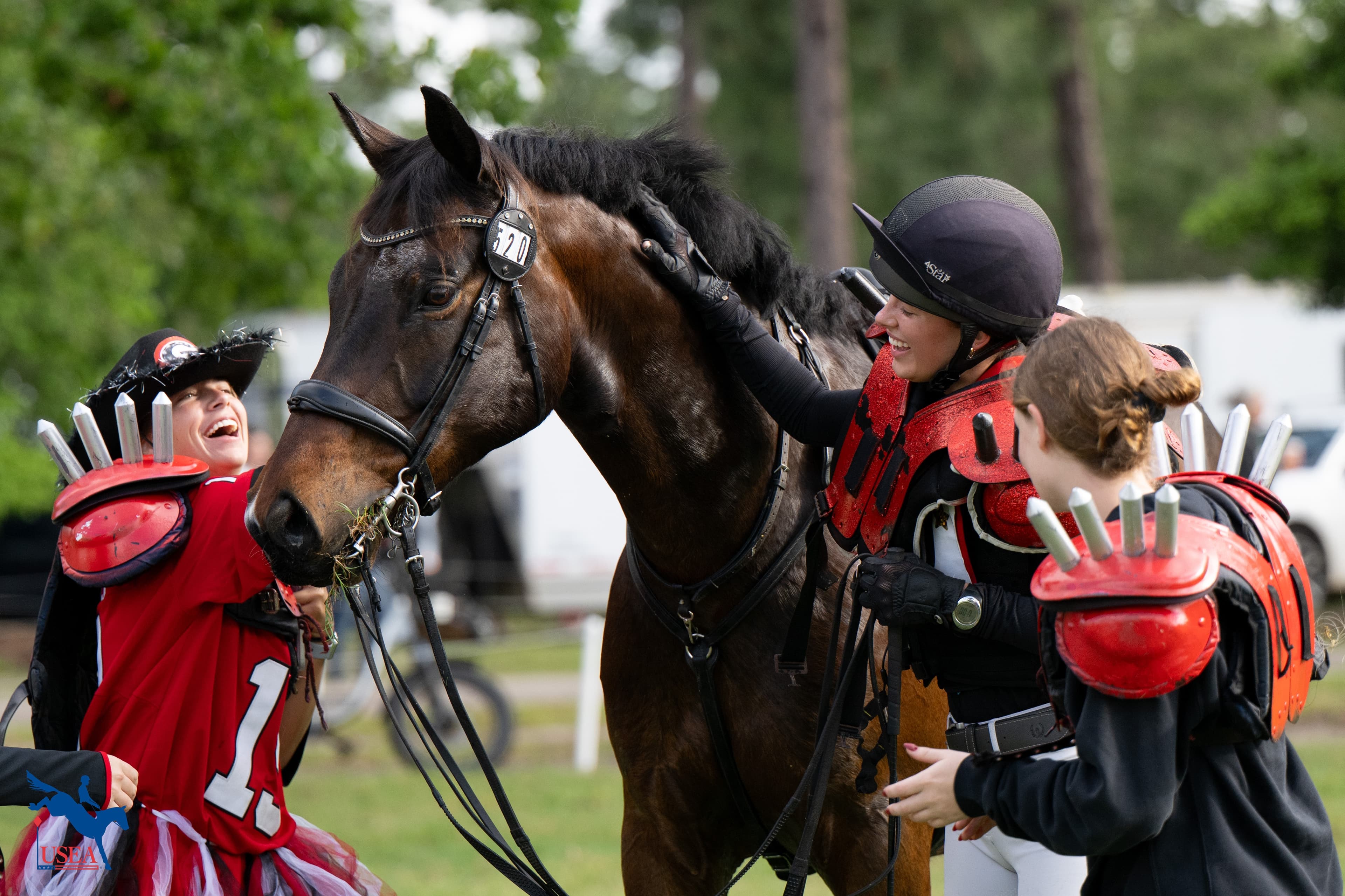USEA Board of Governors Awards Funds for Safety and Educational Projects

The United States Eventing Association (USEA) Board of Governors has approved three proposals for the funding of safety and education projects through the funds which were set aside last year. These resources have become available through sound financial management of the Association. In keeping with the non-profit status of the USEA, and the desire to increase the safety and education of its members, the Board has opted to dedicate funds towards these goals. A request for proposals (RFP) was released in March and individuals were able to submit RFPs for endeavors which will improve safety, offer new educational opportunities for USEA members and advance the sport of eventing. The entire Board met on August 15-16 in Dulles, Va. for its annual summer meeting and voted to support the following projects:
Jump Judge Training Video
Irene Doo, Holly Covey and Bonnie Kibbie, all members of the USEA Volunteer Committee along with professional videographer, Sybil Miller, proposed the filming and production of a jump judge training video to be distributed to all organizers of USEA recognized events. From the proposal’s statement of need “jump judges are the lifeblood of eventing competitions. In addition to helping the cross-country phase run smoothly, jump judges ensure the safety of competitors and horses. Adequate and timely training for both the educational and safety aspects of jump judging is difficult to deliver due to the transient and variable nature of the volunteer population.”
The video will benefit volunteers, organizers and competitors by enhancing education, recruitment of volunteers and appreciation of the vital role of jump judges. The team plans to create the video using a series of chapters that will also include filmed examples of disobediences, holds, overtaking, dangerous riding, falls, etc.
When completed, the video will be available for all to view on the USEA website.
US Equestrian Frangible Technology Grant Program
Since 2013, the United States Equestrian Foundation (now US Equestrian) has offered US Equestrian licensed competitions at the Intermediate level or higher to apply for grants up to $500 to aid in the purchase of frangible technology parts. With the implementation of a change to rule EV140.9, all oxers must be built using frangible technology on both the front and back rails, the demand for the grant money has increased.
Funds awarded to the grant program will ease the burden on organizers and allow more events to receive grants towards the purchase of frangible technologies through US Equestrian.
LandSafe Area Grants
The LandSafe Rider Fall Safety System is a training program designed to teach the best practices of fall prevention and response. Danny and Keli Warrington, the founders of LandSafe, have requested funds to help bring the system to every USEA Area. The grant would supplement the cost for LandSafe to travel to all ten Areas and teach the system at USEA Area camps and clinics at a greatly reduced cost for individual attendees.
LandSafe will provide the USEA with measurable data (before and after program assessments and videos) designed to demonstrate each Area’s progression through the program.
The USEA would like to thank all of the teams who submitted proposals for the funding and looks forward to tracking the progress of the selected initiatives.
It is also important to note that the USEA Foundation, a separate 501c3 organization, continues to raise funds for important programs which benefit safety and education related to the sport of eventing. Donations raised in the past have benefited the Collapsible Fence Study, the Equine Cardiovascular and Pulmonary Research Study and the Roger Haller Scholarship for the Education of Eventing Officials. If you are interested in donating to help advance the sport, please visit www.useafoundation.org.
About the USEA Board of Governors
The USEA is run by a Board of Governors consisting of 21 volunteers who are elected by the broader membership of the USEA at the Annual Meeting of Membership. A full list of Board members may be found online at www.useventing.com/about/bog. The Board is assisted by a permanent staff of 16 who fulfill the daily needs of the organization from the headquarters in Leesburg, Va.















